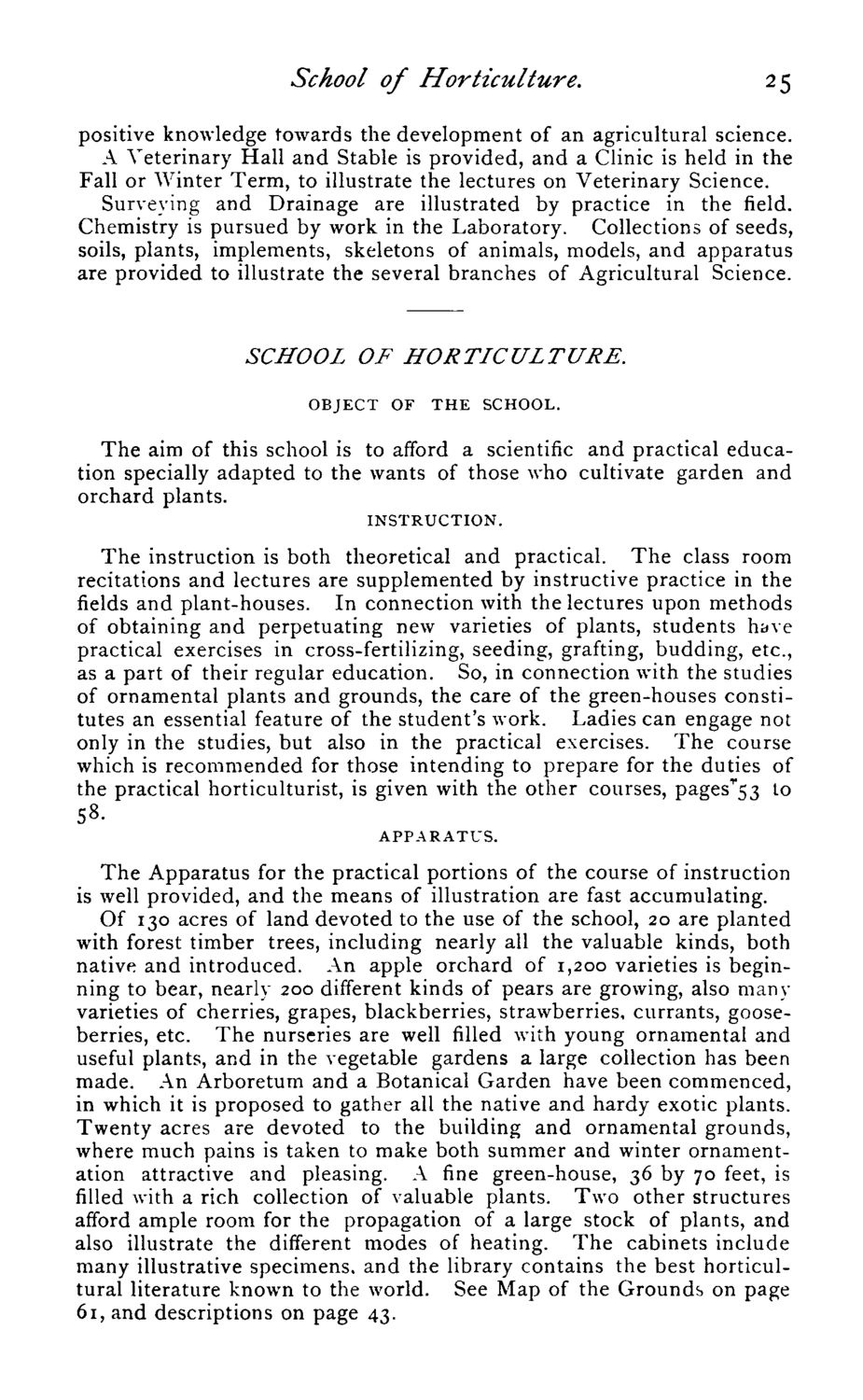| |
| |
Caption: Course Catalog - 1873-1874
This is a reduced-resolution page image for fast online browsing.

EXTRACTED TEXT FROM PAGE:
School of Horticulture. 25 positive knowledge towards the development of an agricultural science. A Veterinary Hall and Stable is provided, and a Clinic is held in the Fall or Winter Term, to illustrate the lectures on Veterinary Science. Surveying and Drainage are illustrated by practice in the field. Chemistry is pursued by work in the Laboratory. Collections of seeds, soils, plants, implements, skeletons of animals, models, and apparatus are provided to illustrate the several branches of Agricultural Science. SCHOOL OF HORTICULTURE. OBJECT OF THE SCHOOL. The aim of this school is to afford a scientific and practical education specially adapted to the wants of those who cultivate garden and orchard plants. INSTRUCTION. The instruction is both theoretical and practical. The class room recitations and lectures are supplemented by instructive practice in the fields and plant-houses. In connection with the lectures upon methods of obtaining and perpetuating new varieties of plants, students have practical exercises in cross-fertilizing, seeding, grafting, budding, etc., as a part of their regular education. So, in connection with the studies of ornamental plants and grounds, the care of the green-houses constitutes an essential feature of the student's work. Ladies can engage not only in the studies, but also in the practical exercises. The course which is recommended for those intending to prepare for the duties of the practical horticulturist, is given with the other courses, pages'1^ to 58. APPARATUS. The Apparatus for the practical portions of the course of instruction is well provided, and the means of illustration are fast accumulating. Of 130 acres of land devoted to the use of the school, 20 are planted with forest timber trees, including nearly all the valuable kinds, both native and introduced. An apple orchard of 1,200 varieties is beginning to bear, nearly 200 different kinds of pears are growing, also many varieties of cherries, grapes, blackberries, strawberries, currants, gooseberries, etc. The nurseries are well filled with young ornamental and useful plants, and in the vegetable gardens a large collection has been made. An Arboretum and a Botanical Garden have been commenced, in which it is proposed to gather all the native and hardy exotic plants. Twenty acres are devoted to the building and ornamental grounds, where much pains is taken to make both summer and winter ornamentation attractive and pleasing. A fine green-house, 36 by 70 feet, is filled with a rich collection of valuable plants. Two other structures afford ample room for the propagation of a large stock of plants, and also illustrate the different modes of heating. The cabinets include many illustrative specimens, and the library contains the best horticultural literature known to the world. See Map of the Grounds on page 61, and descriptions on page 43.
| |